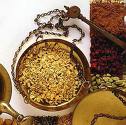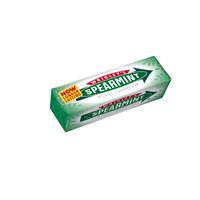
Before Western medicine came along with its pills and injections, the ancient Indian healing science of Ayurveda advised a preventative approach to healthcare. By working out which Ayurvedic body type you are and determining your dosha, a diet can be mapped out to suit your nutritional needs to prevent illness.
There are several alternative ways to help combat the symptoms of colds without having to reach for chemically packed pills in silver foil. One of these is Ayurveda, the oldest natural healing system originating from India, which offers preventative and curative measures in line with nature.
Ayush Wellness Spa in Jersey have crafted a cold prevention treatment that adheres strictly to the ancient Indian healing philosophy of Ayurveda mixing authentic therapies with luxurious treatments. While they have a number of treatments designed to offer relief from the discomfort associated with head and sinus problems, Nasya is a traditional treatment where the expertly trained therapists massage pressure points in the face, head and chest with medicated oils for instant relief and use steam to help clear nasal passages and aid in purification. Oils and powders are placed up the nose as a stimulant to release congestion.
Ayush Wellness Spa fosters a natural approach to health care that includes meditation, yoga, exercise, massage and daily and seasonal lifestyle routines. They seek to redress the chemical warfare that people wreak on their own bodies by using products that are 100 per cent natural. The spa boasts an apothecary kitchen where herbs and oils are mixed according to guests dosha. Once guests have had their imbalances addressed and dosha type determined with a treatment programme and complementary Ayurvedic meals, we can prescribe natural supplements and elixirs to take with you, so that you can continue on your path towards perfect health in the real world.
Yet for those who are susceptible to the common cold but may not be able to make it to Ayush Wellness Spa to rejuvenate themselves for the year ahead, Ayurvedic help is at hand online or at local herbal or health food outlets.
Ashwagandha (Withania somnifera) is a shrub whose roots are widely used to boost immunity, reduce anxiety and increase longevity. A review of 58 articles, published in Alternative Medicine Review, concluded that ashwaganda has anti-inflammatory, anti-stress, antioxidant and immune-boosting properties. (600 to 1,000 milligrams a day, divided into two or three capsules) or guduchi (see below) throughout the cold and flu season.
Guduchi (Tinospora cordifolia) is an herb that enhances immunity by boosting antibody production and the activity of powerful white blood cells called natural killer cells, says Simon. Studies conducted in India have shown that patients receiving guduchi before having abdominal surgery had fewer postoperative infections and significantly improved outcomes. Ayush advises taking 1 teaspoon twice daily or the recommended dose of ashwagandha if you catch colds and flu easily.
Herbal jam, or Chavan Prash, which comes from the amalaki fruit (Indian gooseberry), is one of the richest natural sources of antioxidants and has immune-enhancing effects. Ayush advises taking it year-round for overall wellness. Spread 1 teaspoon on bread twice daily or take it in capsules.
For enquiries or to make a reservation contact Ayush Wellness Spa, Hotel de France, St Saviours Road, St Helier, Jersey, Channel Islands JE1 7XP on 01534 614171 or visit www.ayushspa.com


